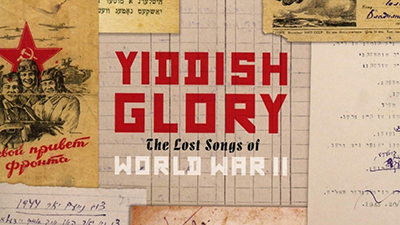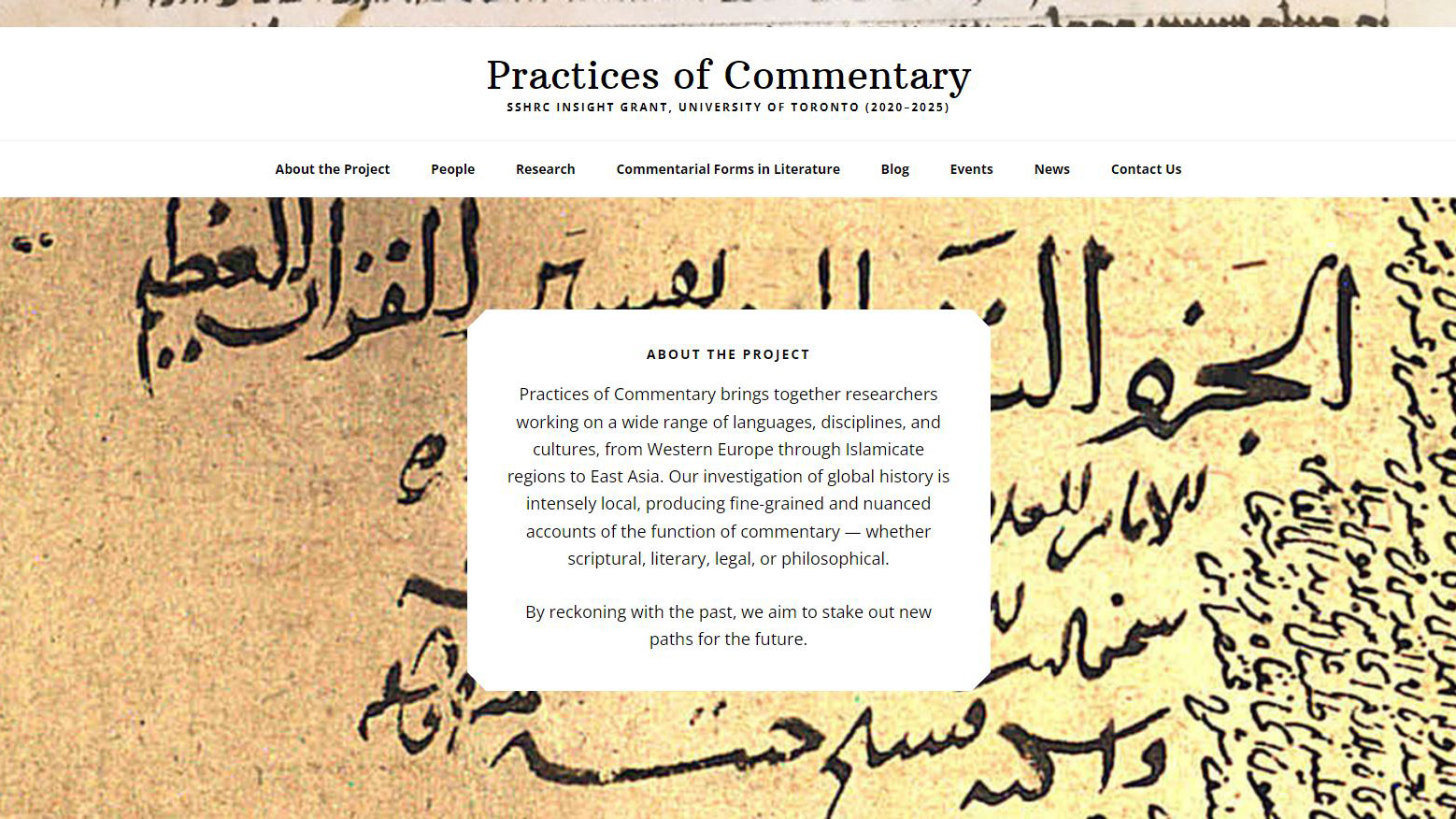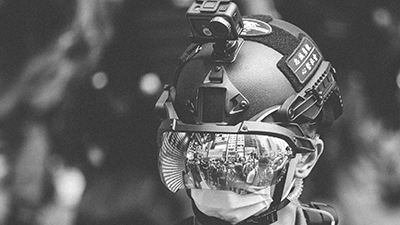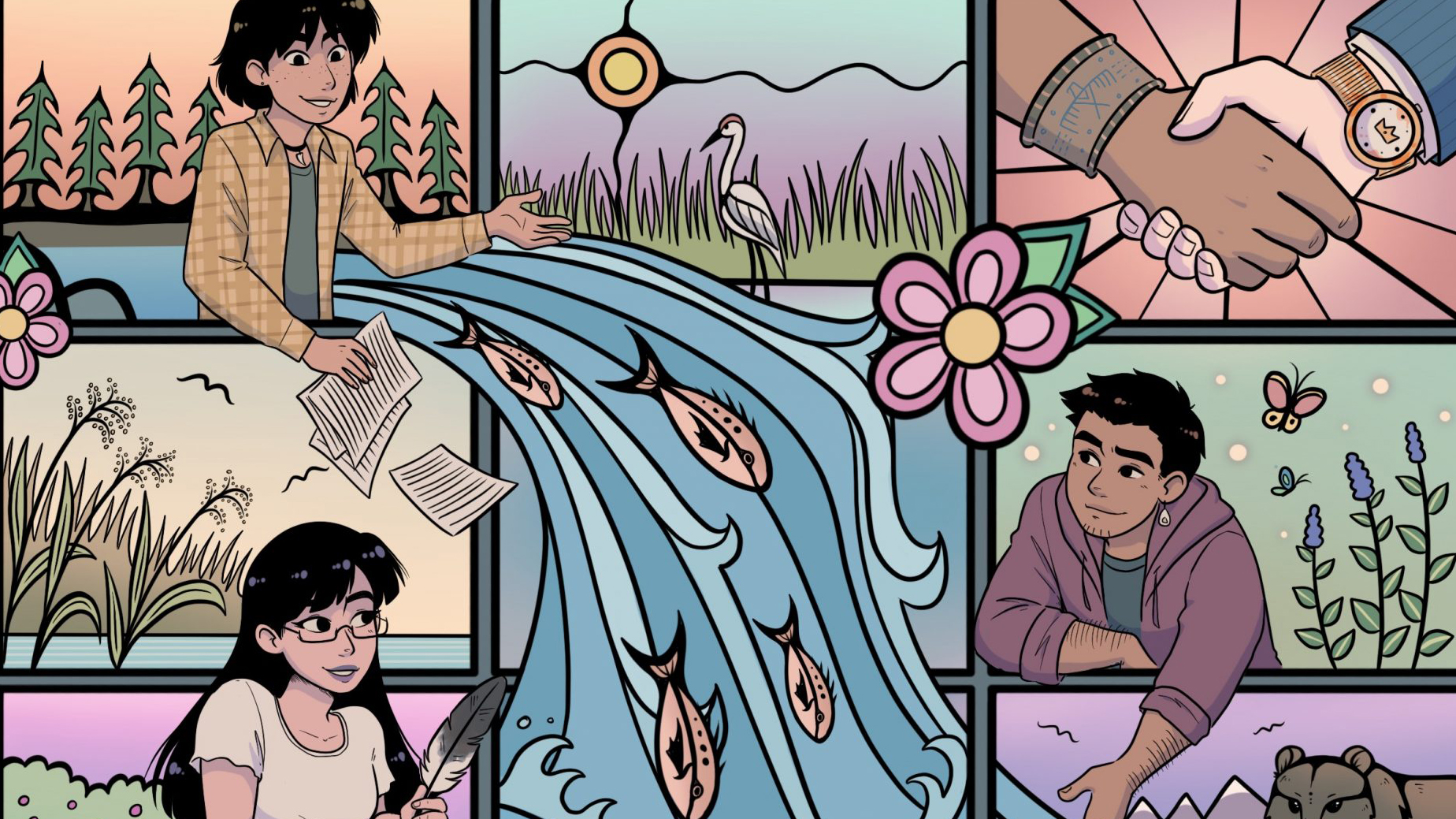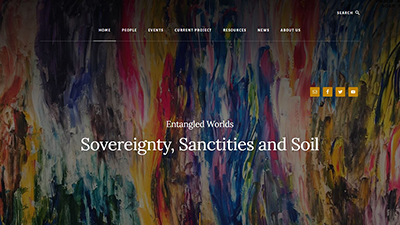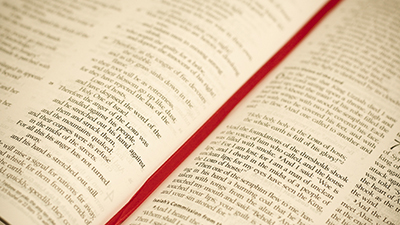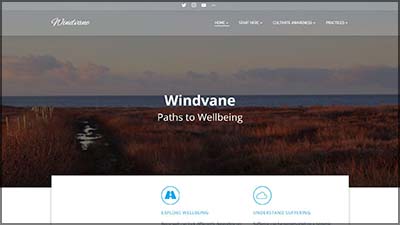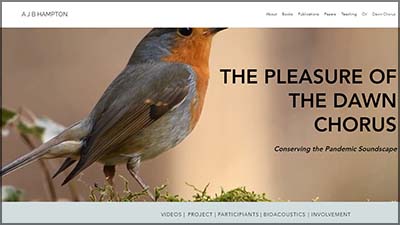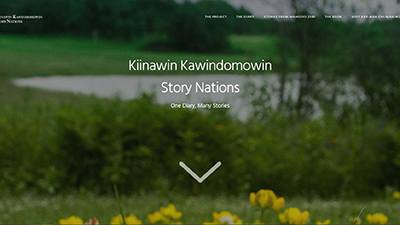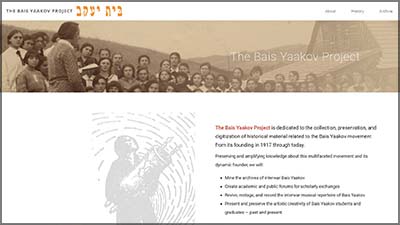Websites sharing work undertaken by DSR faculty
Professor Anna Shternshis (→ DSR profile page)
Yiddish Glory: The Lost Songs of World War II
The product of a collaboration between Anna Shternshis, artist Psoy Korolenko (Moscow-New York), and Toronto-based producer Dan Rosenberg, this collection features anti-fascist songs and music documenting Nazi atrocities that were discovered in a former Soviet archive in the Vernadsky National Library of Ukraine. The songs have been brought to life in an outstanding new recording of this music written in the Soviet Union during World War II by Holocaust victims and survivors.
Professors Walid Saleh & Amanda Goodman
Practices of Commentary
This project brings together researchers working on a wide range of languages, disciplines, and cultures, from Western Europe through Islamicate regions to East Asia. The investigation of global history is intensely local, producing fine-grained and nuanced accounts of the function of commentary — whether scriptural, literary, legal, or philosophical. By reckoning with the past, new paths will be staked out for the future.
Professor Kevin Lewis O'Neill (→ DSR profile page)
Evasion Lab: Thinking the Underside of Surveillance
A research collective focusing on the themes of data, law, and finance—to consider how institutions and individuals (for better, for worse) make themselves illegible and thus ungovernable.
Professor Pamela Klassen (→ DSR profile page)
Treaty Conversations
A collaborative effort among students, professors, curators, artists, and community partners to share educational materials about Treaty 3, and treaty relationships and responsibilities in Ontario more broadly.
Professor Simon Coleman (→ DSR profile page)
Entangled Worlds: Sovereignty, Sanctities and Soil
How and why do attachments to soil matter? How do we engage anew with the sacralization of old and new forms of sovereignty? This initiative is an interdisciplinary engagement with the changing nature of theopolitical charisma and the formation of populist forces in multiple urban, historical emplacements. We cross boundaries between the Natural, Social and Human Sciences in attempting to grasp the significance of theological practices to political and social forms of living.
Professor John Marshall (→ DSR profile page)
The Five Gospels Parallels
This HTML presentation of the Gospels texts is designed to be a teaching tool for introductory level classes in New Testament and Christian Origins. For this reason, and because of the particular constraints of HTML, it does not offer the same level of detail as a printed synopsis (i.e. Throckmorton 1979, 1992; Aland 1985). Its advantage is that it allows more "play" than a printed synopsis and that it presents the materials in the same order as the canonical Gospels. Moreover, it offers texts that are not commonly included in the synopses designed for classroom use: Thomas and Paul. Others may follow.
Professor Frances Garrett (→ DSR profile page)
Windvane: Paths to Wellbeing
Explore wellbeing, practice flourishing – A guide for students and instructors in higher education
Professor Alexander Hampton (→ DSR profile page)
The Pleasure of the Dawn Chorus: Conserving the Pandemic Soundscape
The song of the dawn chorus is an invitation back to a conversation with the non-human inhabitants with whom we share our cities. Of the many unforeseen consequences of the COVID-19 pandemic, one was a greater awareness of the urban nature in our midst. As the lockdown forced us to remain apart, we became more aware of the wildlife around us, particularly urban birds and their songs. The aim of this project is to preserve this awareness, so that as we come together once more, we also maintain our new relationship with the non-humans with whom we share our cities.
Professor Pamela Klassen (→ DSR profile page)
Story Nations: One Diary, Many Stories
Kiinawin Kawindomowin Story Nations is a multimedia expression of our collective effort to restory colonial documents and missionary history about Manidoo Ziibi (Rainy River) and the wider Treaty 3 Ojibwe Territory in Northwestern Ontario. Our research begins with a written story — the diary of an Anglican missionary, Frederick Du Vernet, who visited the Ojibwe people of Manidoo Ziibi in 1898. As scholars, we retell and contextualize Du Vernet’s narrative with the methodologies of religious studies, Indigenous studies, and digital humanities. We have supplemented the historical record with research essays and audio-visual media, such as photographs and digital stories, that document our visits to Manidoo Ziibi.
Professor Naomi Seidman (→ DSR profile page)
The Bais Yaakov Project
Dedicated to the collection, preservation, and digitization of historical material related to the Bais Yaakov movement from its founding in 1917 through today. Preserving and amplifying knowledge about this multifaceted movement and its dynamic founder, the project mines the archives of interwar Bais Yaakov; creates reate academic and public forums for scholarly exchanges; revives, restages, and records the interwar musical repertoire of Bais Yaakov; and presents and preserves the artistic creativity of Bais Yaakov students and graduates past and present.



